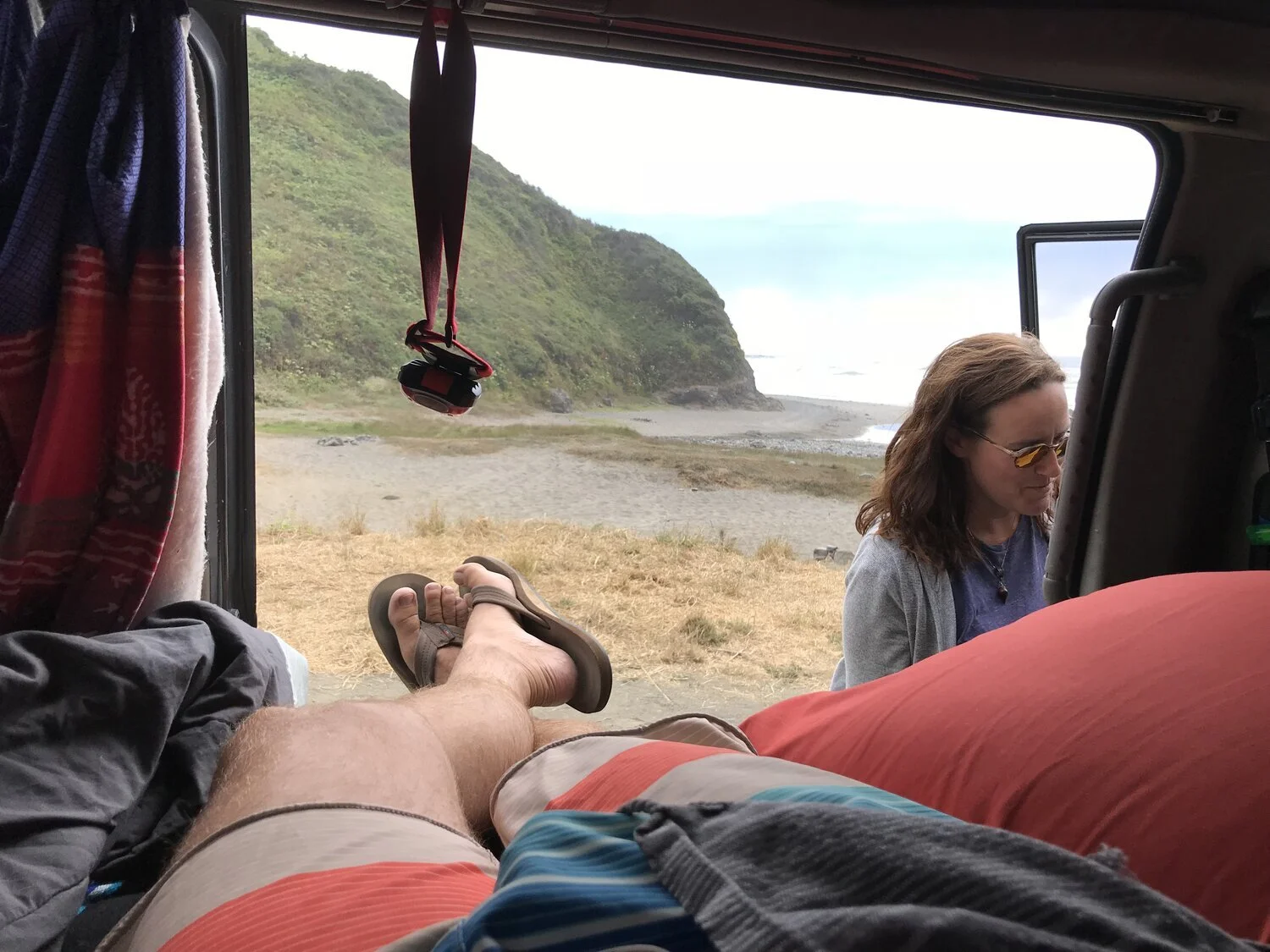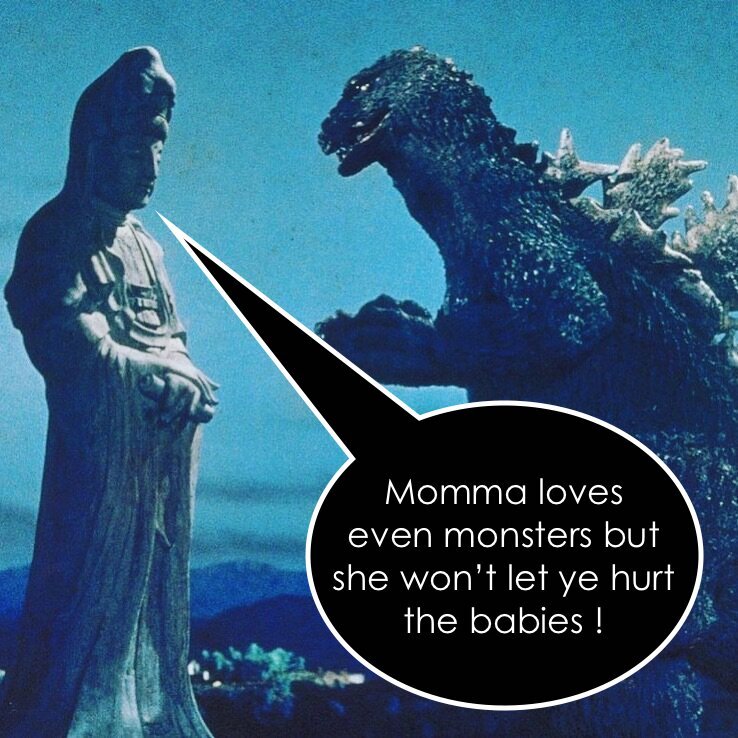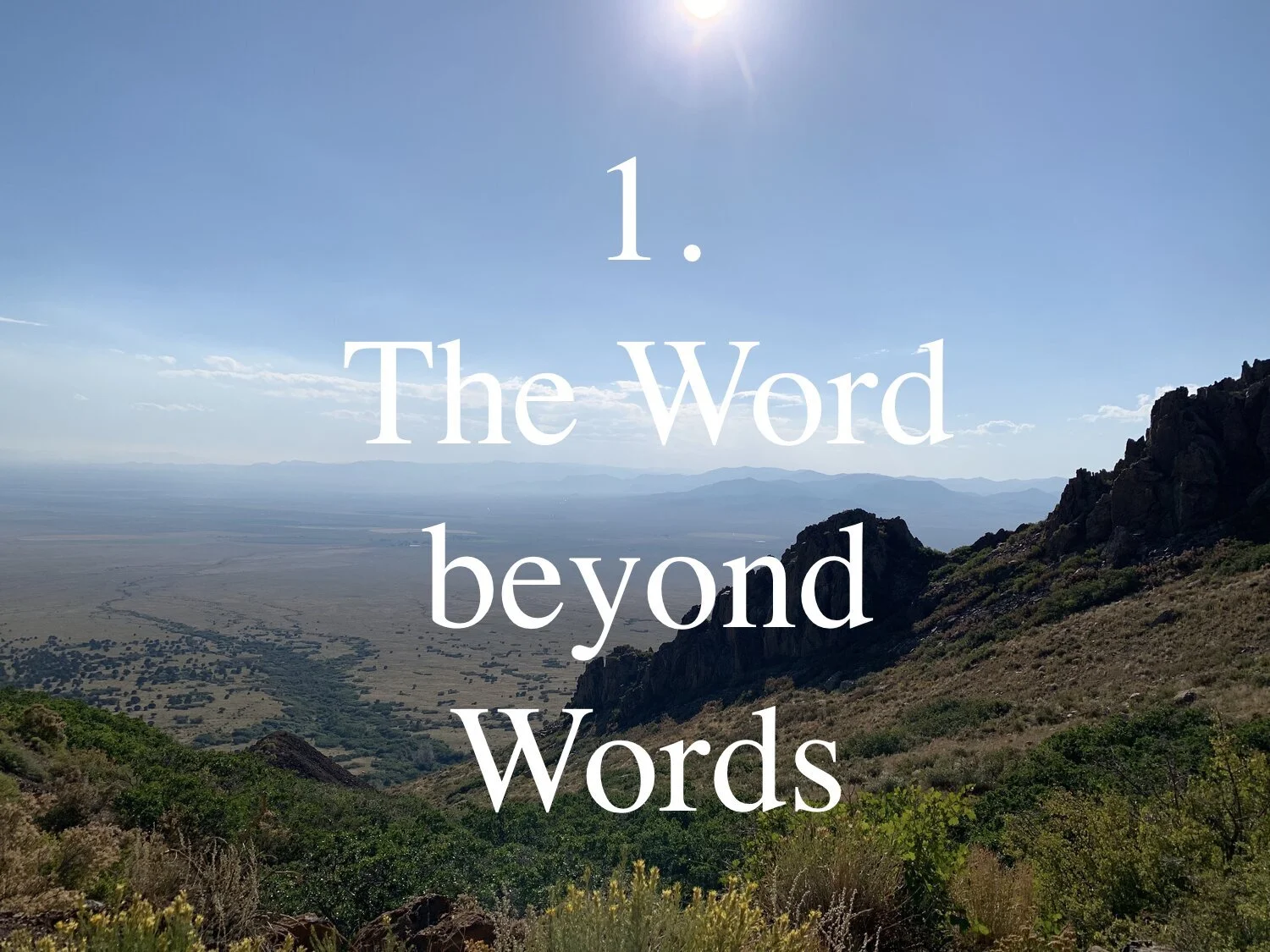Thirty spokes meet at a hub. The empty space at the center is what lets the wheel go ‘round.
Read MoreCan you balance your mind and body and grasp the unity of everything? Can you soften your breath and become like a sleeping baby? Can you rinse from your eyes whatever is clouding your vision?
Read MoreThis episode is dedicated to a question from a listener who works in Christian education. They ask: How do I help change the culture of a church so that it's life giving & not authoritarian? In other words, how does one practically apply some of the themes we care about at Protect Your Noggin for the wellbeing of our kids? After minute 30, we give our actual interpretation of the Tower of Babel, & we discuss why non-Christians should want the Bible taught in public schools as an important historical document that has had a profound influence on global culture.
Read MoreFor this episode, Jeff asks Stacie (a death doula, AKA, end of life doula) to take over the episode and offer comfort and wisdom to our whole society the way should would work with an individual who was facing his or her mortality. This comes from our realization that, while we want to promote hope in our times, we also don't want cheap hope, or the sort of shallow positivity that covers over injustice without remedying it.
Read MoreOverfill your cup: it will spill. Over-sharpen your sword: it might shatter, when it really matters. Amass wealth: you can’t protect it. Excessive pride in riches and prestige will only leave you in disgrace.
Read MoreListen in on a discussion of moral injury, how it shows up in the Bible, & how we might read accounts war and violence in antiquity. Jeff interviews guest Dr. Brad E. Kelle is professor of Old Testament & Hebrew at Point Loma Nazarene University. His academic work focuses on the OT prophets, warfare in ancient Israel, trauma studies, moral injury, and the history of ancient Israel and Judah. He is author of The Bible and Moral Injury: Reading Scripture alongside War's Unseen Wounds (Abingdon, 2020).
Read MoreTo discover the greatest good flow like water. Water pours life into all creatures without striving. It pools in places men disdain. This is how it’s like the Tao. So make your home in low places. Draw from the deep well of the heart. Offer kindness to others. Let your words be sincere. Govern justly. Let your work be your art. Remain present with everyone you encounter. Live without striving and people won’t try to pull you down.
Read More…the sage puts herself last yet comes out ahead. She dies to her ego yet she finds life. See how this makes her selfless? And this is how she becomes her true self.
Read MoreThe spirit of the valley is deathless.She is called the Mysterious Mother. The womb of the Mysterious Mother is called the source of heaven and earth. It flows endlessly, almost imperceptibly.
Read MoreThe cosmos is unbiased, treating all living things like sidewalk chalk drawings. The sage is unbiased, treating all people like sidewalk chalk drawings.
Read MoreOnce we perceive beauty in the world, we also discern ugliness. After we gain knowledge of goodness, we also recognize evil. Existence and the void give birth to each other. Difficult and easy determine each other. Long and short measure each other. High and low position each other. Tone and silence make melodies together. Before and after march in the same parade. Therefore, the sage manages life without dominating, and teaches through living, rather than preaching. She lets the living things sprout without judging them, then lets them flourish without trying to own them. The sage creates art Without making it her identity. When her art is complete, she lets it be. This is why it endures forever.
Read MoreThe Tao seems like an empty vessel, but when you pour it out, it never ceases to flow. It is fathomless! A wellspring of all that exists.
Read MoreThe sage emancipates men from mental slavery, and restrains the crafty from their manipulations. Surf the Tao and everything will be okay.
Read MoreWe made a list of seven reasons why the Tao Te Ching helps people from all (or no) faith tradition protect their noggins and learn to outfox religious wolves. In other words, this is an explanation of why we thought this text was ideal for our next set of lessons
Read MoreOnce we perceive beauty in the world, we also discern ugliness. After we gain knowledge of goodness, we also recognize evil ...
Read Morewhatever your current spiritual, political, ethical, or philosophical perspective happens to be, we think you’ll get a lot out of the Tao Te Ching. It’s contemplative but it’s also practical. It helps us to chill out in our anxious world. It helps us see our connections to others and thus motivates us to compassion. So long as you’re interested in wisdom, peace, love and harmony, we trust that you’ll be glad you came along on this adventure with us.
Read MoreThis is an overview of and introduction to our flow for this season, which is focussed on the classic text by Lao Tzu. We will still be bringing topical shows and interviews related to outfoxing religious wolves, but this season is going to emphasize stepping back and finding peace amid the chaos.
Read MoreThis final chapter in our twelve part study focuses on Jesus’ illustration of the new wineskins for new wine and the disastrous problem of putting new wine into old wineskins.
Read MoreThe unpardonable sin is a concept that has tormented many sensitive consciences over the last two thousand years, though few are clear about what it entails. We explain that this sin is committed when we are awakened to the truth in an undeniable way but reject the truth for the sake of our own advantage. The truths you have discovered through the course of this study now call you to bold action. To ignore the implications of these truths for the sake of convenience is the one thing Jesus describes as inexcusable. This text isn’t about God sending people to hell on a technicality, but rather is about the living hell in which we find ourselves when we deny power of the true kingdom in order to preserve our little, fragile kingdoms.
Read More



















